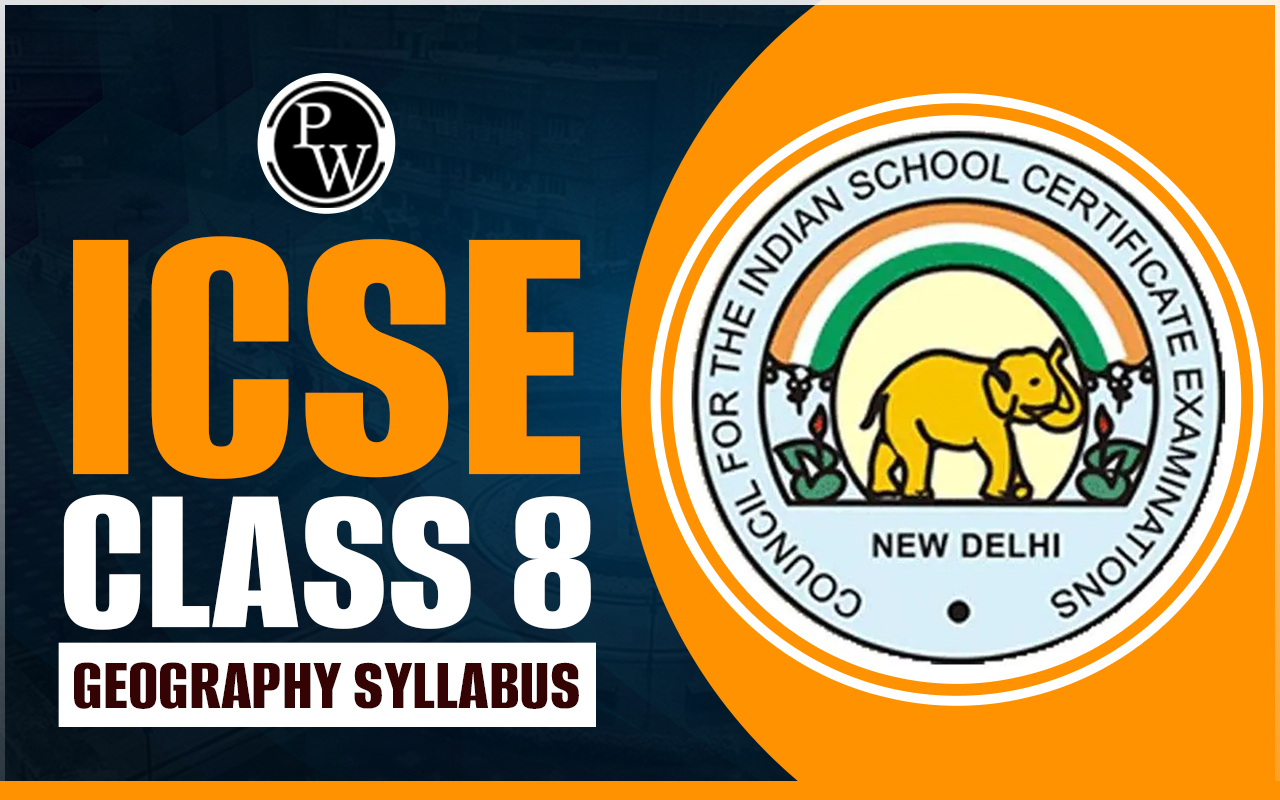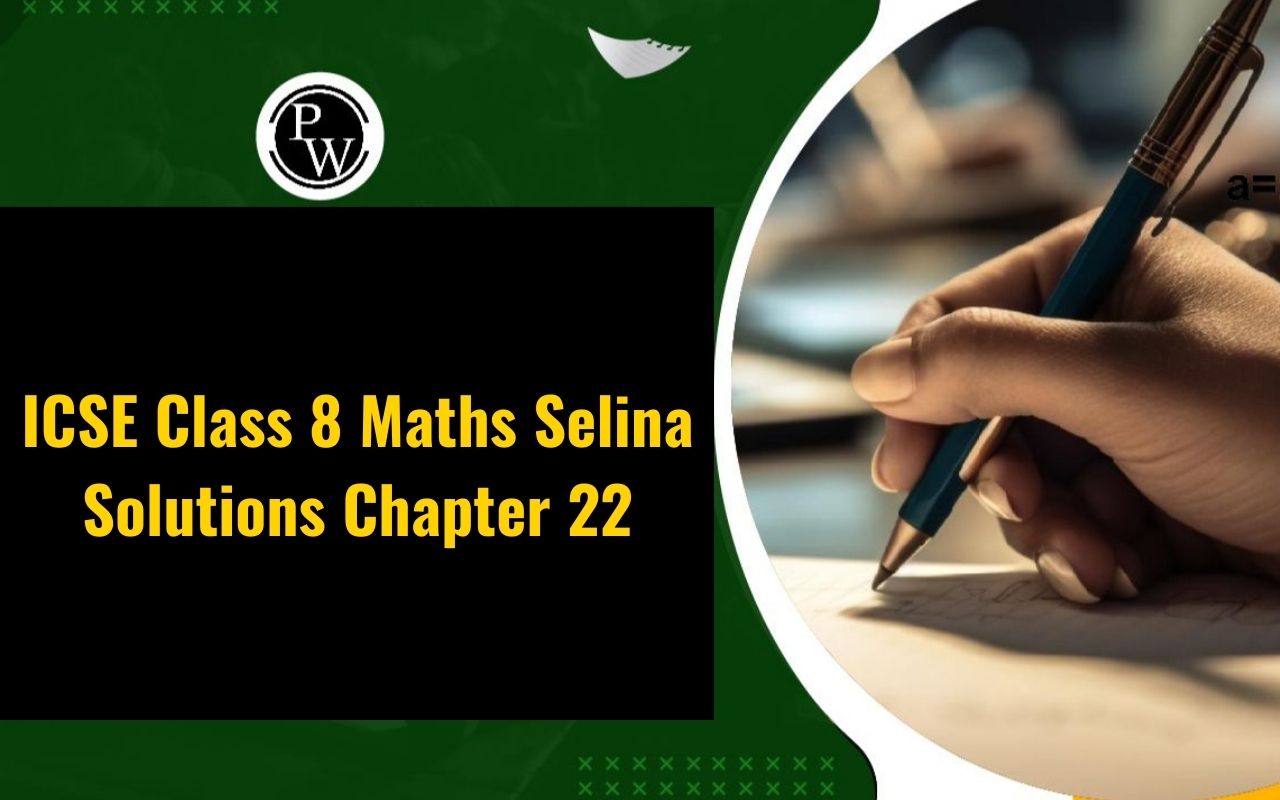
ICSE Class 8 Chemistry Syllabus: The ICSE Class 8 Chemistry syllabus provides a structured approach to developing scientific thinking and analytical skills in students. It lays the groundwork for advanced learning by focusing on conceptual clarity and practical understanding. The syllabus is designed to promote inquiry-based learning through observation and experimentation.
The exam pattern usually consists of a theory paper that tests comprehension, reasoning, and application of concepts. Students are encouraged to engage in regular practice and participate in hands-on activities to reinforce their learning. With a balance of theoretical and practical elements, the syllabus ensures a comprehensive and engaging Chemistry learning experience.
Highlights of ICSE Class 8 Chemistry Syllabus
The ICSE Class 8 Chemistry syllabus offers a well-structured foundation for students to develop scientific understanding and critical thinking skills.
It focuses on conceptual clarity and application-based learning. The exam pattern emphasizes both theory and practical knowledge. To get a detailed view of the topics and structure, check the table below for the complete syllabus overview.
| ICSE Class 8 Chemistry Exam Highlights | |
| Particulars | Details |
| Full Exam Name | ICSE Board of Secondary Education Class 8 Examination |
| Short Exam Name | ICSE Class 8 |
| Name of the Board | Council for the Indian School Certificate Examinations (CISCE) |
| Established In | 1956 |
| Medium of Instruction | English |
| Overall Passing Marks | 35% Marks |
| Exam Duration | 3 hours |
| Exam Subjects | English Language, Mathematics, Hindi Science (Physics, Biology, Chemistry), Social studies (Geography, Civics, History), Computer |
| Mode of Examination | Offline |
| Official Website | cisce.org |
ICSE Class 8 Chemistry Syllabus
The ICSE Class 8 Chemistry Syllabus can be accessed on the Physics Wallah website, providing students with an organized structure for their study sessions. By utilizing this resource, students can allocate their study time efficiently and gear up for the upcoming final exams.The syllabus is updated with content reflecting the latest advancements from the 2025-26 academic year, ensuring that students are well-prepared. Furthermore, the syllabus covers essential topics and concepts pivotal for examination success. The ICSE Chemistry Syllabus is segmented into specific chapters, outlined in the table provided below.
|
ICSE Class 8 Chemistry Syllabus |
|
|---|---|
| Chapter Number | Chapter Name |
| Chapter 1 | Matter |
| Chapter 2 | Physical and Chemical Changes |
| Chapter 3 | Elements, Compounds and Mixtures |
| Chapter 4 | Atomic Structure |
| Chapter 5 | Language of Chemistry |
| Chapter 6 | Chemical Reactions |
| Chapter 7 | Carbon and its Compounds |
| Chapter 8 | Water |
| Chapter 9 | Hydrogen |
ICSE Class 8 Chemistry Syllabus Chapter Wise Overview
Here is a chapter-wise overview of the ICSE Class 8 Chemistry syllabus -
Chapter 1: Matter
This chapter introduces the concept of matter and its different states—solid, liquid, and gas. It explains the properties of each state and the changes between them. Students learn about the physical nature of matter and its classification. The basic distinctions between elements, compounds, and mixtures are also discussed briefly.
Chapter 2: Physical and Chemical Changes
Students learn to differentiate between physical and chemical changes with practical examples. The chapter includes indicators of chemical changes like change in color, temperature, or gas evolution. It also explains how some changes are reversible and others are not. Common experiments are used to demonstrate these concepts.
Chapter 3: Elements, Compounds and Mixtures
This chapter explores the definitions and characteristics of elements, compounds, and mixtures. It covers the differences between homogeneous and heterogeneous mixtures. Students also learn various separation techniques such as filtration and distillation. The importance of pure substances is highlighted.
Chapter 4: Atomic Structure
Students are introduced to the structure of an atom, including protons, neutrons, and electrons. The chapter discusses the concept of atomic number and mass number. It also introduces basic models of the atom and how electrons are arranged in shells. The periodic table and its significance are briefly covered.
Chapter 5: Language of Chemistry
This chapter teaches students how to write and understand chemical symbols, formulae, and equations. It explains the concept of valency and how to balance chemical equations. Students practice writing molecular formulas and interpreting chemical reactions. Basic rules and conventions in chemical language are emphasized.
Chapter 6: Chemical Reactions
Here, students explore the different types of chemical reactions like combination, decomposition, displacement, and double displacement. The chapter explains reactants and products and how new substances are formed. The conditions required for chemical reactions are discussed. Energy changes in reactions are also introduced.
Chapter 7: Carbon and its Compounds
This chapter deals with the versatile nature of carbon and the types of compounds it forms. Students learn about organic and inorganic compounds of carbon. The uses of common carbon compounds like coal, graphite, and diamond are discussed. Simple hydrocarbons and their properties are also introduced.
Chapter 8: Water
Students study the physical and chemical properties of water. The chapter highlights water’s role as a universal solvent and its importance in daily life. It covers water pollution, purification methods, and the water cycle. The concept of hard and soft water is introduced.
Chapter 9: Hydrogen
This chapter discusses the preparation, properties, and uses of hydrogen gas. Students learn how hydrogen is collected and tested in laboratories. It also covers the physical and chemical properties of hydrogen. The chapter concludes with hydrogen’s role in fuel and industrial applications.
ICSE Class 8 History and Civics Syllabus
ICSE Class 8 Chemistry Exam Pattern
Per the guidelines set by the ICSE board, schools employ a Continuous and Comprehensive Evaluation (CCE) system to assess students' progress and development. This evaluation is achieved through two distinct methods: Formative and Summative Assessments. Here's a breakdown of the evaluation pattern for ICSE Class 8:
- Formative Assessment : This assessment method gauges students' involvement and understanding through activities such as quizzes, interviews, visual assessments, assignments, practical experiments, oral examinations, projects, puzzles, and collaborative group tasks.
- Summative Assessment : Schools strictly adhere to the ICSE guidelines when scheduling half-yearly evaluations. During the summative assessment phase, students are tested based on the prescribed ICSE Class 8 syllabus.
- Co-scholastic Areas : Beyond academic achievements, students' overall development is assessed through co-scholastic domains. This includes evaluating their behavior towards school, teachers, and peers, as well as their engagement in aesthetic pursuits like dance, music, and drawing. Additionally, achievements in sports, participation in extracurricular activities, and involvement in competitions are considered vital aspects of this evaluation.
To gain a comprehensive understanding of the ICSE Class 8 examination structure, please refer to the table provided below.
| ICSE Class 8 Chemistry Exam Pattern | ||
| Subject | Percentage Marks | Percentage Marks |
| Science | 80 | 20 |
| Mathematics | 80 | 20 |
| Hindi | 80 | 20 |
| English language | 80 | 20 |
| Social studies | 80 | 20 |
| Computer | 80 | 20 |
ICSE Class 8 Chemistry Syllabus PDF
Below we have provided the ICSE Class 8 Chemistry Syllabus PDF which includes a comprehensive chapter-wise breakdown of all the topics covered throughout the academic year.
This syllabus follows the ICSE curriculum and is designed to build a strong foundation in Chemistry through well-structured chapters like Matter, Atomic Structure, Chemical Reactions, and more. Students and teachers can use this syllabus as a guide for planning lessons, revisions, and assessments. Download the full syllabus PDF from the link given below.
Do you need help with your homework or preparing for exams?
Study without using the internet
Preparation Tips for ICSE Class 8 Chemistry Syllabus
Here are preparation tips for the ICSE Class 8 Chemistry syllabus:
1. Understand Concepts, Don’t Just Memorize
Chemistry is logical—focus on understanding why a reaction happens, not just what happens. For example, learn why physical changes don’t alter substance identity, rather than just listing examples.
2. Make Concept Maps for Each Chapter
Create visual diagrams linking concepts (e.g., "Types of Matter" branching into solids, liquids, gases). This improves retention and gives you a quick revision tool before exams.
3. Maintain a Formula & Reaction Notebook
Dedicate a small notebook for important chemical equations, valencies, and atomic structures. Revising this regularly helps you in chapters like Language of Chemistry and Chemical Reactions.
4. Follow the ‘15–15–15’ Rule for Practice
Spend 15 minutes revising theory, 15 minutes writing reactions or solving numerical problems, and 15 minutes solving sample questions—this balanced routine strengthens every area.
5. Use ICSE-Specific Study Material
Stick to the ICSE-recommended textbooks and question papers. Many students make the mistake of following generic CBSE/State board content, which skips ICSE-specific question styles.
6. Revise with Previous Year Questions
Even in Class 8, many schools give internal assessments based on Class 9 patterns. Solving ICSE-style questions boosts familiarity with exam patterns and wording.
ICSE Class 8 Chemistry Syllabus FAQs
What are the primary units or chapters covered in the ICSE Class 8 Chemistry syllabus?
How can I access the detailed ICSE Class 8 Chemistry syllabus?
Are practical experiments part of the ICSE Class 8 Chemistry syllabus?
How can I effectively prepare for the ICSE Class 8 Chemistry exam based on the syllabus?
Are there any specific resources or reference books aligned with the ICSE Class 8 Chemistry syllabus?










